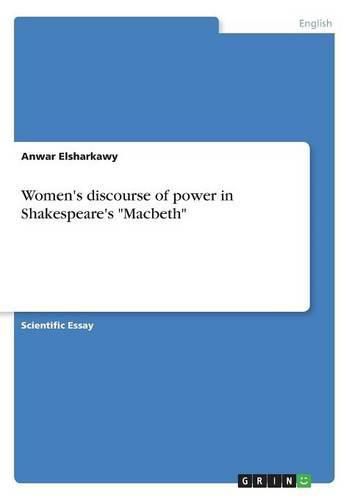Readings Newsletter
Become a Readings Member to make your shopping experience even easier.
Sign in or sign up for free!
You’re not far away from qualifying for FREE standard shipping within Australia
You’ve qualified for FREE standard shipping within Australia
The cart is loading…






Scientific Essay from the year 2013 in the subject English Language and Literature Studies - Literature, grade: M.A, course: Discourse Analysis, language: English, abstract: Women in Macbeth (i.e., Lady Macbeth and the Witches) speak a strange language that is very similar to what women seek today. This language can be described as antilanguage: a language by which women can direct, control, and dominate men. This paper introduces a contradictory statement to the current views in discourse analysis, which indicate that women are powerless, trivial, dominated, and sexual objects (Andersen, 1988, Chaika, 1982; Lakoff, 1975) by showing women as powerful, serious, and dominating as men. In doing so, it focuses on the recent views of discourse, power, and women, taking Shakespeare’s Macbeth as a field of application by analyzing Lady Macbeth’s turns of talk.
$9.00 standard shipping within Australia
FREE standard shipping within Australia for orders over $100.00
Express & International shipping calculated at checkout
Scientific Essay from the year 2013 in the subject English Language and Literature Studies - Literature, grade: M.A, course: Discourse Analysis, language: English, abstract: Women in Macbeth (i.e., Lady Macbeth and the Witches) speak a strange language that is very similar to what women seek today. This language can be described as antilanguage: a language by which women can direct, control, and dominate men. This paper introduces a contradictory statement to the current views in discourse analysis, which indicate that women are powerless, trivial, dominated, and sexual objects (Andersen, 1988, Chaika, 1982; Lakoff, 1975) by showing women as powerful, serious, and dominating as men. In doing so, it focuses on the recent views of discourse, power, and women, taking Shakespeare’s Macbeth as a field of application by analyzing Lady Macbeth’s turns of talk.